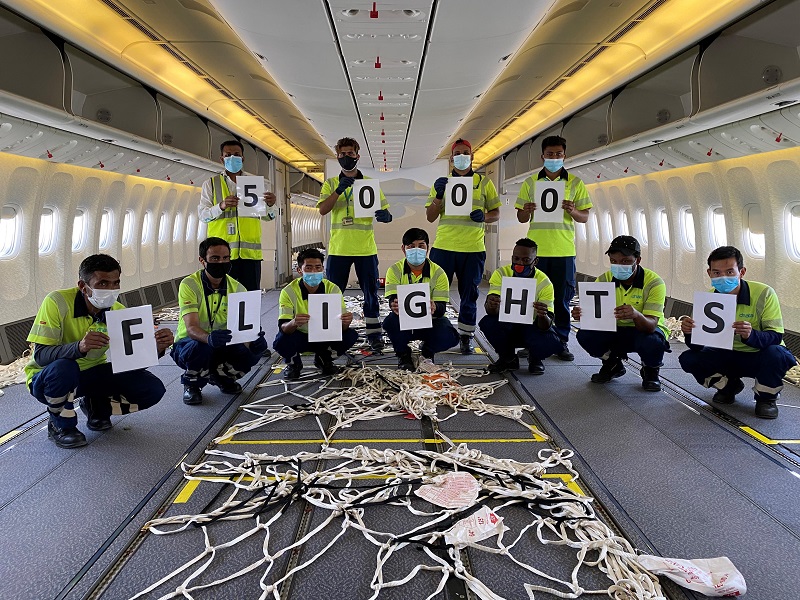dnata serves 5,000+ cargo-in-cabin flights in the past 12 months
dnata achieved a special cargo milestone in Dubai – handling over 5,000 cargo-in-cabin flights, safely moving over 50,000 tons of shipments at Dubai airport since March 2020.
In response to the strong air cargo market demand for the rapid, reliable and efficient transportation of essential commodities, several airlines introduced additional cargo capacity during the pandemic by using passenger aircraft with seats fully or partially removed from the cabin.
To adapt to changing customer needs, dnata enhanced services, improved processes and trained more than 500 employees to safely and efficiently handle passenger planes carrying cargo only.
dnata introduced effective procedures across a range of aircraft types. With no existing industry standards to refer to, the company built the necessary procedures from scratch in collaboration with key stakeholders, including IATA and several airline customers.
To ensure the procedures were safe, trials were conducted at DXB using various loading and unloading methods across both narrow and wide-body aircraft. This allowed dnata to identify the best and safest procedures to serve cargo-in-cabin flights.
Paul Littlejohn, dnata’s Divisional Vice President for Airside Operations, said: “We are proud to reach this memorable milestone in such a short space of time.
“There was intense demand for airlines to recoup revenue through cargo-in-cabin operations and we needed to be in a position to provide safe and effective ground handling services quickly. Our teams delivered innovative, efficient solutions at great speed while never letting our safety standards drop.
“We continue to work hard to consistently provide the highest level of service and safety to all of our airline customers, every day.”
Although passenger flights have been significantly reduced globally during the pandemic, air cargo demand has remained stable and dnata has been working closely with government authorities, customers and suppliers to maintain global trade and the flow of essential goods.






















 Kuwaiti developer URC signs with Ahmadiah Contracting for the Commercial District development at Hessah AlMubarak
Kuwaiti developer URC signs with Ahmadiah Contracting for the Commercial District development at Hessah AlMubarak